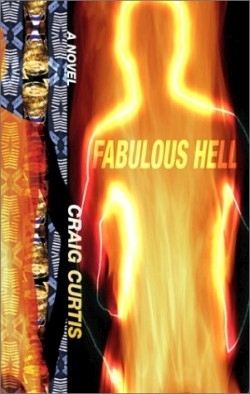Fabulous Hell
A Novel
A kind of Catcher in the Rye for a new generation of alienated gays, this novel rarely understates anything as it piles pathos upon estrangement upon pathos. The protagonist, nameless except for an infrequently used nickname, is an HIV-positive homosexual slacker whose life and times are fueled by alcohol, cocaine and crystal methamphetamine. His mantra as the story begins: “I don’t care.”
He doesn’t care if he drinks too much. He doesn’t care if he’s fired for stealing drugs. He doesn’t care if he’s ruining his health. His alcoholic, negligent parents prepared him not to care. That’s not all. When his stepfather raped him, he floated above the bed as if it were happening to someone else. Now he drifts, from job to job, from lover to lover and from buzz to buzz.
Then cracks begin appearing in the wall of his non-caring. For one thing, he’s lovelorn. For another, when a friend dies, he weeps. For another, he’s a cynical and witty observer of the human scene, including the corporate hospitality industry. Noticing resort managers rarely work the peak evening and weekend hours, he muses: “Not that managers are real leaders, but it would be nice to have them backing us up as authority figures during the stressful hectic times.”
The story, set largely in the West Hollywood area of California with jaunts to Las Vegas, Mexico and Seattle, is told in a cryptic first-person voice that occasionally seems self-consciously stylized, but which at its best conveys a lot in few words: “We head back down Sunset. In a burgundy convertible, Vic in a red beret and me in a brightly printed shirt; it’s Fag Patrol. A carload of UCLA students holler ‘Fairy’ as they pass in Westwood. We laugh.”
The author, a first-time novelist who was a 1996 finalist for the PEN Center USA West Grants for Writers with HIV/AIDs, walks a tight rope in chronicling his character’s change of consciousness. The author wobbles a few times, but he never falls into the abyss of sentimentality. There is no blinding light of revelation and the alienated hero does not exactly find his soul at the end of the story. There is an attitude adjustment, however, and it has a bit more depth than the kind obtained through drugs. He is left better equipped to continue his search.
Reviewed by
Rich Wertz
Disclosure: This article is not an endorsement, but a review. The publisher of this book provided free copies of the book to have their book reviewed by a professional reviewer. No fee was paid by the publisher for this review. Foreword Reviews only recommends books that we love. Foreword Magazine, Inc. is disclosing this in accordance with the Federal Trade Commission’s 16 CFR, Part 255.

